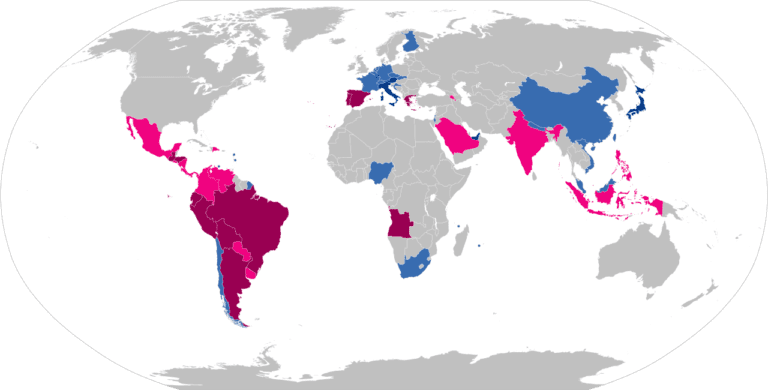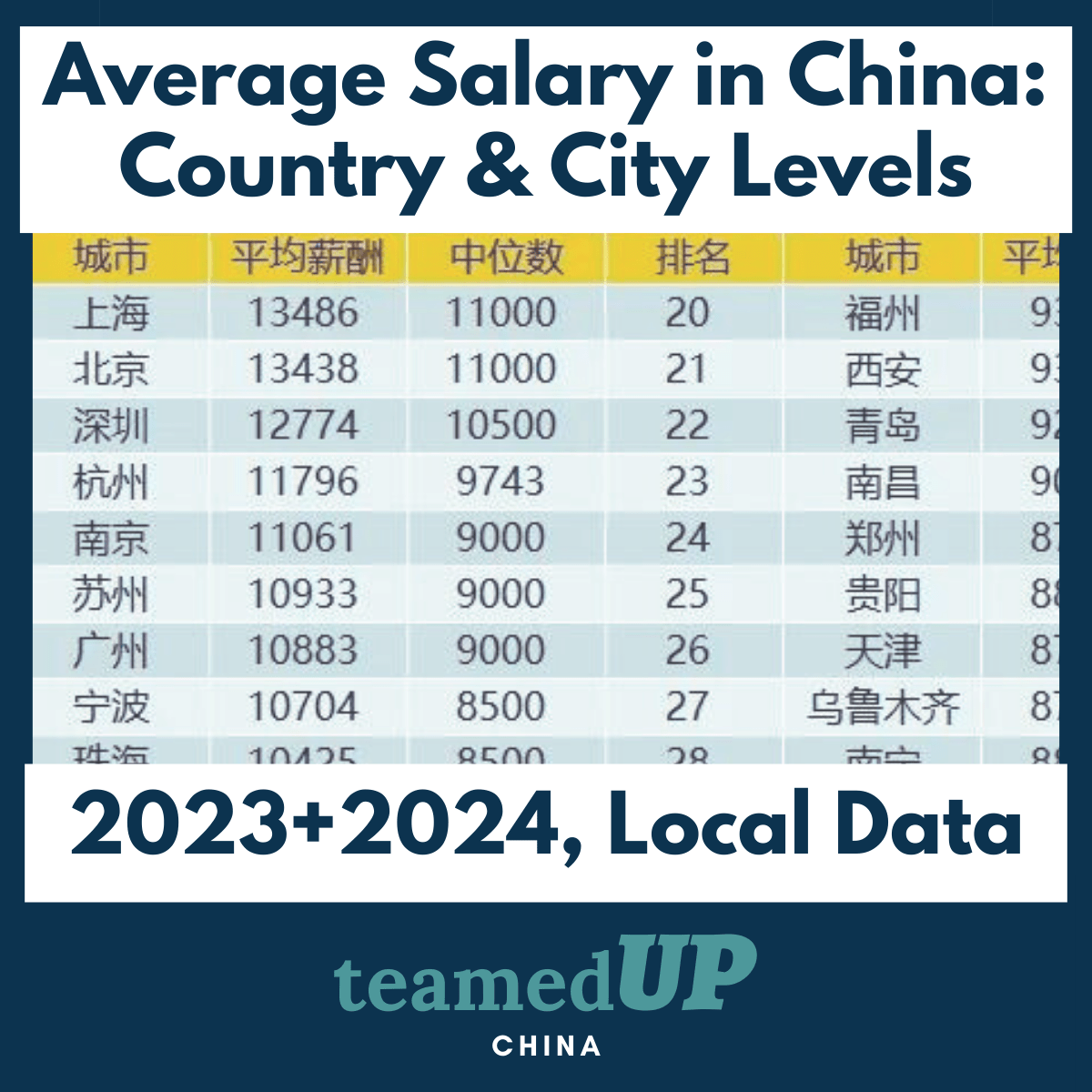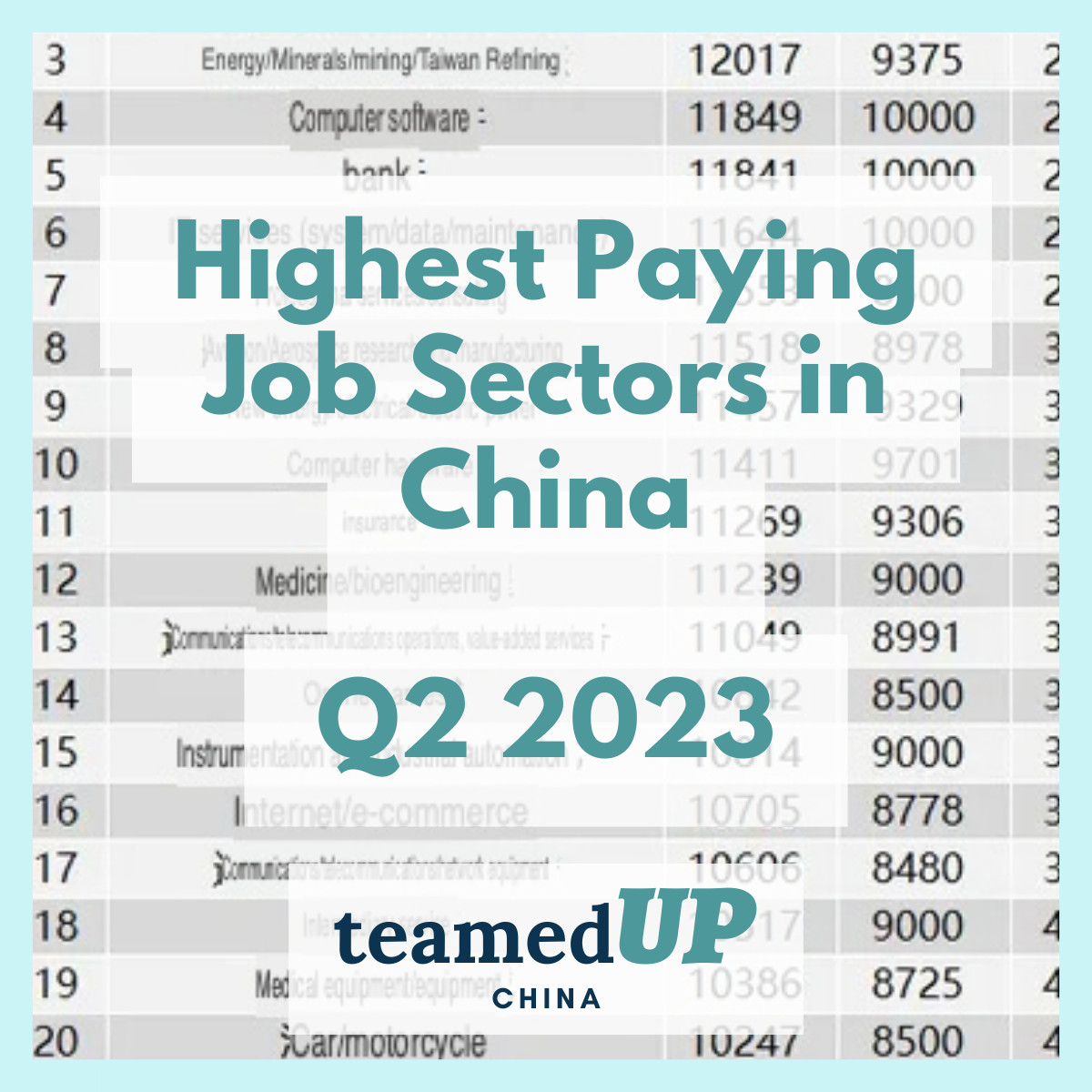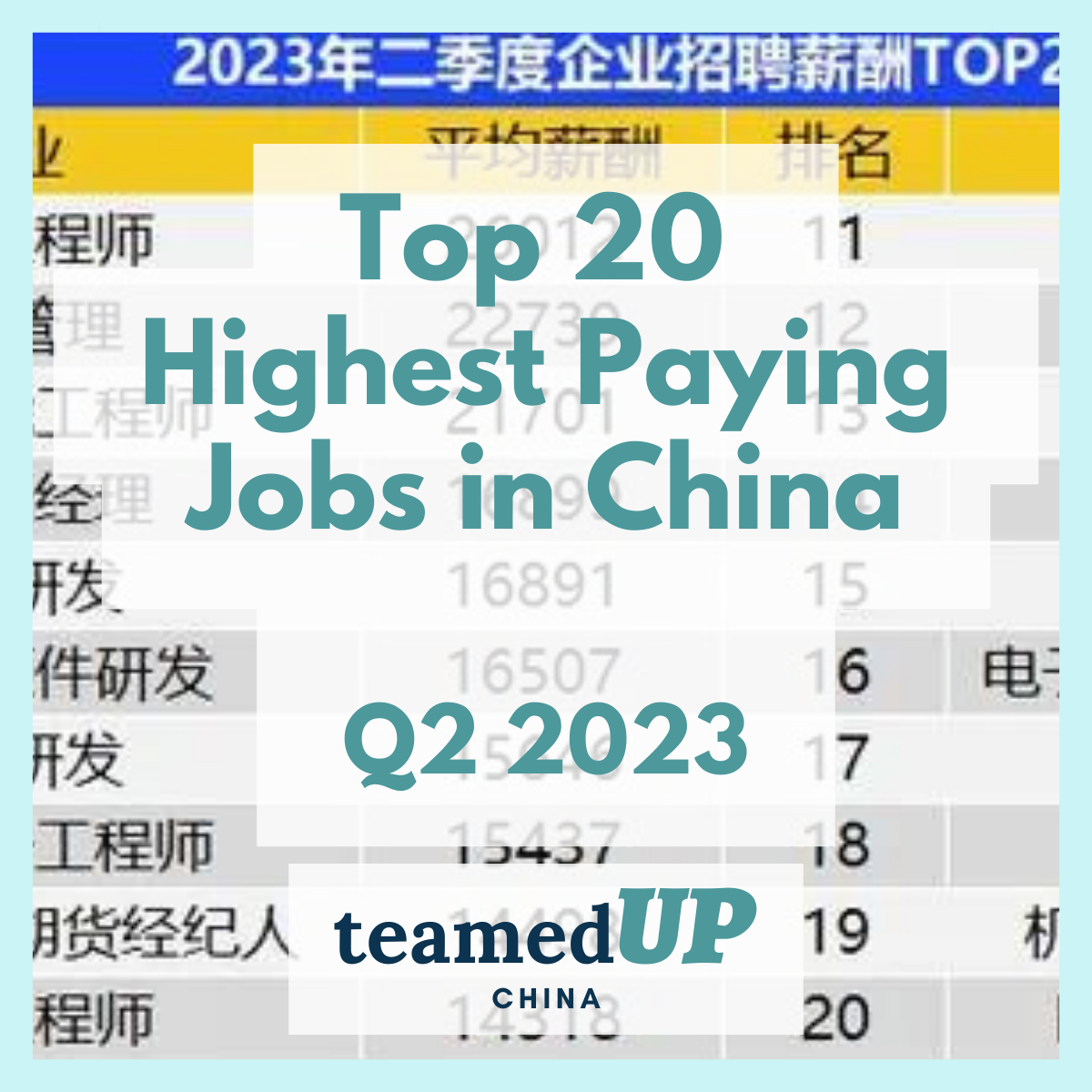In China, the concept of a 13th-month salary has become a common and expected practice in the business world. This additional month’s pay is a form of bonus or year-end reward for employees, providing financial relief and motivation during the festive Chinese New Year season. In this article, we will delve into the history, rules, and best practices surrounding the 13th-month salary bonus in China.
What is a 13th Monthly Salary Bonus?
Let’s get this one out of the way first!
The thirteenth salary is an extra payout beyond the regular monthly salary, serving as an annual bonus. Its value is often equivalent to an employee’s monthly salary. Depending on the country, the bonus can be paid as a lump sum or distributed in multiple installments.
It is most commonly a mandatory policy in Central and South America, customary in Western Europe, and a mix throughout Asia.
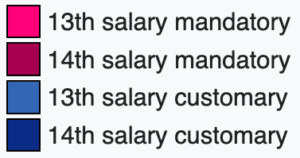
Source: 13th Salary (global)
History of the 13-month Salary in China
The tradition of a 13th-month salary in China has its roots in international commerce, where it was initially introduced to boost employee morale and loyalty as China industrialized and capitalized throughout the 1990s and 2000s. Over time, this practice made its way into the Chinese business landscape as companies recognized its positive impact on employee engagement and retention.
Is a 13th Month Salary Bonus Required in China?
While not mandated by law, the 13th-month salary has become a customary practice in many Chinese companies across all industries.
It reflects a commitment to employee well-being and serves as a recognition of their hard work throughout the year.

Caishen's name is often invoked during Chinese New Year celebrations.
When is a 13th Monthly Salary Bonus Paid in China?
13th month salary bonuses are traditionally paid out around the Chinese New Year holiday. This is the biggest holiday in Chinese culture and there is a week-long national holiday in China during this time.
International companies still often stick to a globally set time, for example, end-of-year. While this isn’t likely a deal-breaker for Chinese workers, it is important to communicate bonus timings clearly and in advance.
Do Chinese Employees Expect a 13th Monthly Salary Bonus?
It’s important to layout that the bonus is…
- Voluntary in nature: The provision of a 13th-month salary is not legally required in China. Companies choose to adopt this practice voluntarily, and the terms are generally outlined in employment contracts or company policies.
- Calculated in many ways: The calculation of the 13th-month salary can vary. Some companies provide a full month’s salary as a bonus, while others may use a percentage of the annual salary. Commonly, it is equivalent to one month’s average salary based on the employee’s total earnings during the year.

13th Month Salary vs Other Types of Bonuses in China
There are 3 main considerations to take in here:
- Most other bonuses are considered benefits, while the 13th-month distribution is usually considered, and taxed as, salary.
- Most bonuses are based on individual or company performance, while the 13th-month salary bonus tends to be fixed regardless of performance.
- Most other bonuses are not outlined in the main employment contract, but rather in supplementary agreements. The 13th-month salary bonus is often in the salary clause of the main contract.

13th Month Bonuses in China: Local Company Examples
So we’ve learned that it’s widley used, but not required by law. What do industry-leading companies actually do in practice? Let’s take a look at what some domestic giants do when it comes to a 13th-month bonus:
1. Alibaba Group: Bonuses with a Personal Touch
Alibaba, one of China’s tech giants, is known for its unique approach to the 13th-month salary. In addition to financial bonuses, Alibaba often includes personalized gifts or experiences for its employees. This personal touch enhances the sense of appreciation and makes the bonus more memorable.
2. Tencent: Performance-Based Rewards
Tencent, another major player in the Chinese tech industry, takes a performance-oriented approach to the 13th-month salary. Employees who have demonstrated exceptional performance throughout the year may receive higher bonuses. This strategy not only motivates employees but also aligns with Tencent’s focus on excellence and growth.
3. Huawei: Tailored Rewards for Different Roles
Huawei, a global leader in telecommunications, adopts a customized approach to the 13th-month salary. The company tailors bonuses based on the roles and responsibilities of employees. This ensures that the reward is proportionate to individual contributions, fostering a sense of fairness and recognition.
4. Lenovo: Encouraging Team Collaboration
Lenovo, a prominent multinational technology company, emphasizes team collaboration in its 13th-month salary strategy. The company often allocates bonuses based on team achievements, fostering a sense of unity and shared success among employees. This approach promotes teamwork and a cooperative work culture.
5. BYD: Early Payouts for Employee Convenience
BYD, a leading electric vehicle manufacturer, is known for its employee-friendly approach to the 13th-month salary. The company often disburses bonuses a bit earlier than other companies, allowing employees to better plan and enjoy the festive season. This considerate timing contributes to a positive employee experience.
6. JD.com: Financial Planning Workshops
JD.com, one of China’s largest e-commerce companies, goes beyond the monetary aspect of the 13th-month salary. The company provides financial planning workshops or seminars to help employees make informed decisions about managing their bonuses effectively. This holistic approach demonstrates a commitment to employee well-being beyond just financial rewards.
7. Baidu: Creative Bonus Structures
Baidu, a leading Chinese tech company, is known for its creative bonus structures. In addition to the traditional 13th-month salary, Baidu sometimes introduces special bonuses tied to specific achievements or milestones. This dynamic approach keeps employees engaged and motivated throughout the year.
8. Haier Group: Flexible Bonus Distribution
Haier, a multinational home appliances and consumer electronics company, adopts a flexible approach to bonus distribution. The company may choose to distribute the 13th-month salary in installments throughout the year, providing employees with a steady stream of financial benefits. This approach helps employees manage their finances more effectively.
As we can see, major Chinese companies employ diverse strategies when it comes to the 13th-month salary bonus. From personalized gifts to performance-based rewards and creative bonus structures, these companies showcase the significance of tailoring the bonus system to align with their unique organizational cultures and values. These cases are a GREAT set of examples to have in mind when crafting or updating bonus systems in China.
The 13th Month Salary in China: A Wrap Up
The 13th-month salary in China has evolved into a valuable practice that fosters a positive work environment and reinforces employee loyalty. While not legally mandated, its widespread adoption reflects its importance in the Chinese business culture. By understanding the rules and best practices surrounding the 13th-month salary, employers can effectively leverage this tradition to enhance employee engagement and satisfaction.
Remember, there IS some flexibility around this bonus. As long as everything is made clear upfront and via a legitimate contract, there are other types of benefits, values, and bonuses that China employers can use instead of or in addition to the 13th-month salary bonus in China.
More from our series on salaries in China:
- 2023 Complete Guide to Salaries in China
- What Are Special (Paid) Working Days in China?
- Average Salary Ranges for New University Graduates in China
- Average Software Developer Salary in China: 14 Sources Compared
- Average Salary in China – Local Data Q2 2023
- Highest Paying Job Sectors in China – Local Data 2023
- Highest Paying Jobs in China (2023)
- Highest Paying Pharmaceutical Jobs in China (2023)
Hiring in China?
We can help, and stay within your budget!
Our China Recruiter Pro service helps companies utilize leading Chinese job platforms such as Maimai, Zhaopin, 51job, BOSS Zhipin, Lagou, and Liepin. Contact Us for a free consultation to discuss hiring goals, salary & compensation budgets in China, and if TeamedUp China is the right fit to support your organization.
Let’s find your next great China-based team member today.

